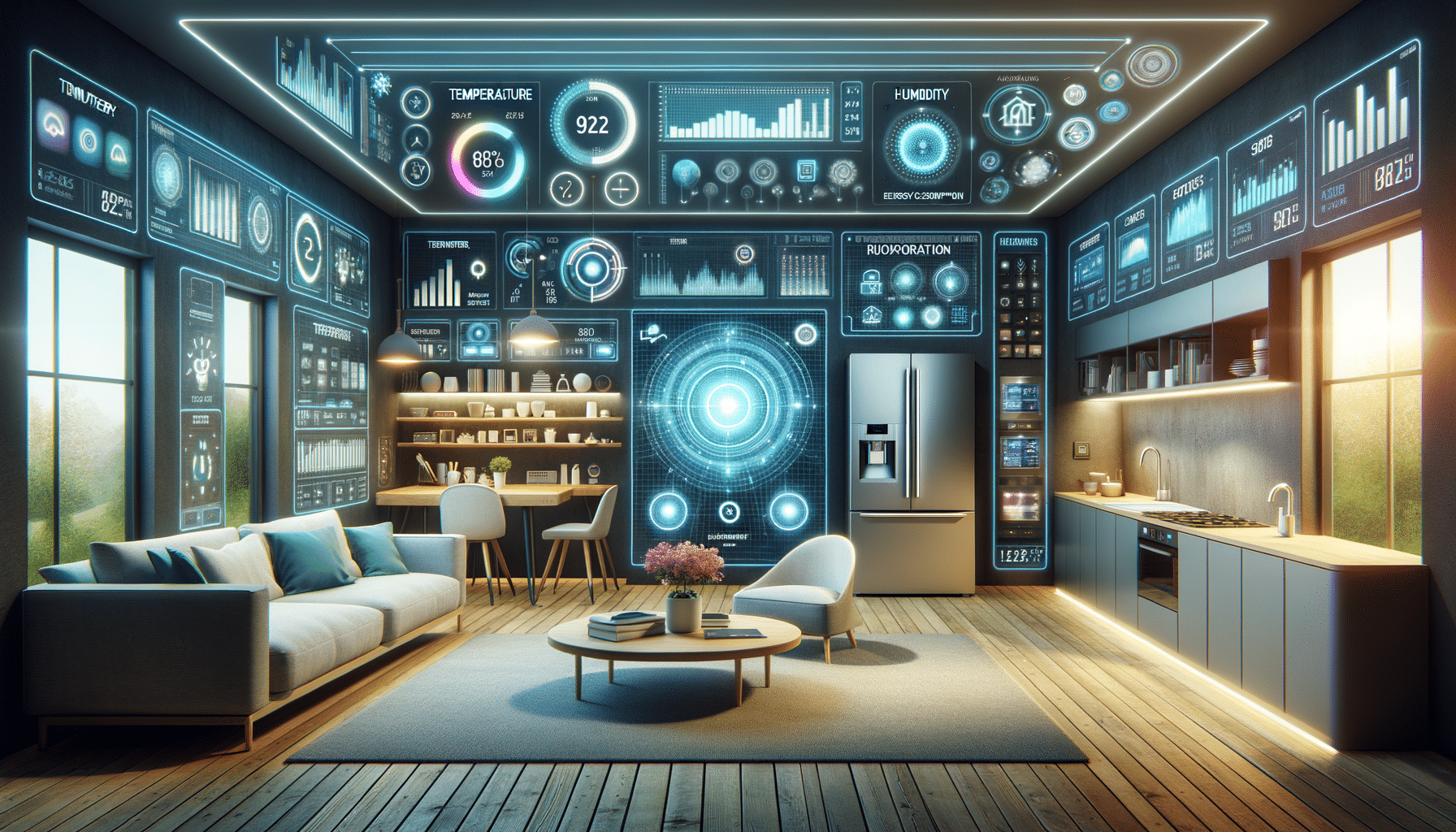Introduction to Smart Home Technology
Smart home technology is revolutionizing the way we interact with our living spaces. This innovative technology is designed to enhance convenience, security, and energy efficiency in our homes. With the integration of smart devices, homeowners can control various aspects of their home remotely using smartphones, tablets, or voice commands. The importance of smart home technology lies in its ability to streamline daily tasks, provide peace of mind, and contribute to a more sustainable lifestyle.
Smart home devices range from simple plug-and-play gadgets to complex systems that require professional installation. They can be as basic as smart bulbs that change color and intensity or as sophisticated as entire home automation systems that control lighting, climate, security, and entertainment. The relevance of smart home technology is growing as more people seek to optimize their living environments and reduce their carbon footprint. By adopting smart home solutions, homeowners can enjoy a more comfortable and efficient lifestyle.
Smart Lighting: Illuminating the Future
Smart lighting is one of the most accessible and impactful smart home technologies available today. These systems allow users to control the lighting in their homes through apps or voice commands, offering a level of customization and convenience that traditional lighting cannot match. Smart bulbs can be programmed to change color, adjust brightness, and even sync with music or movies to create an immersive experience.
One of the key benefits of smart lighting is energy efficiency. By using LED technology and allowing for precise control, smart bulbs can significantly reduce energy consumption, leading to lower electricity bills. Additionally, smart lighting systems often come with features like motion detection and scheduling, which further enhance energy savings by ensuring lights are only on when needed.
Smart lighting also contributes to home security. By setting lights to turn on and off at specific times, homeowners can create the illusion of occupancy, deterring potential intruders. This feature is particularly useful for those who travel frequently or have irregular schedules. Overall, smart lighting is a versatile and practical addition to any smart home setup, offering both aesthetic and functional benefits.
Smart Security: Enhancing Home Safety
Security is a top priority for many homeowners, and smart security systems offer a modern solution to traditional concerns. These systems include a range of devices such as smart cameras, doorbells, locks, and alarms, all designed to provide comprehensive protection for your home. With the ability to monitor and control these devices remotely, homeowners can keep an eye on their property from anywhere in the world.
Smart cameras and doorbells come equipped with features like live streaming, motion detection, and two-way audio, allowing users to see and communicate with visitors in real-time. Smart locks offer keyless entry options, which can be managed through a smartphone app, providing convenience and eliminating the need for physical keys. These locks can also send alerts when doors are locked or unlocked, adding an extra layer of security.
Another advantage of smart security systems is their integration with other smart home devices. For example, a smart security system can be linked to smart lighting, automatically turning on lights when motion is detected. This kind of integration not only enhances security but also improves the overall efficiency of the home. By investing in smart security, homeowners can enjoy peace of mind knowing their property is protected by the latest technology.
Smart Entertainment: Redefining Leisure
Smart entertainment systems are changing the way we consume media, offering a more personalized and interactive experience. These systems include smart TVs, speakers, and streaming devices that can be controlled via voice commands or mobile apps. With smart entertainment, users can access a wide range of content from various platforms, all tailored to their preferences.
Smart TVs are equipped with internet connectivity and built-in apps, allowing users to stream movies, shows, and music directly from their devices. They can also be integrated with smart assistants, enabling voice control for hands-free operation. Smart speakers, on the other hand, provide high-quality audio and can be used to control other smart home devices, making them a central hub for home automation.
The convenience of smart entertainment systems extends beyond content consumption. With features like multi-room audio and personalized playlists, users can enjoy their favorite music and shows in any part of the house. This level of customization and convenience makes smart entertainment an attractive option for tech-savvy homeowners looking to enhance their leisure time.
Smart Energy Management: Towards a Sustainable Future
Energy management is a crucial aspect of smart home technology, as it directly impacts both the environment and household expenses. Smart energy management systems include smart thermostats, plugs, and energy monitors, all designed to optimize energy usage and reduce waste.
Smart thermostats are among the most popular energy management devices, allowing users to control their home’s heating and cooling systems remotely. These devices learn the user’s schedule and preferences, automatically adjusting temperatures for maximum comfort and efficiency. By optimizing energy usage, smart thermostats can lead to significant savings on utility bills.
Smart plugs and energy monitors provide insights into the energy consumption of individual devices, helping homeowners identify energy hogs and make informed decisions about their usage. These devices can also be programmed to turn off appliances when not in use, further reducing energy waste.
By adopting smart energy management solutions, homeowners can contribute to a more sustainable future while enjoying the benefits of reduced energy costs. This technology not only promotes environmental responsibility but also enhances the overall efficiency of the home, making it an essential component of any smart home setup.




Leave a Reply